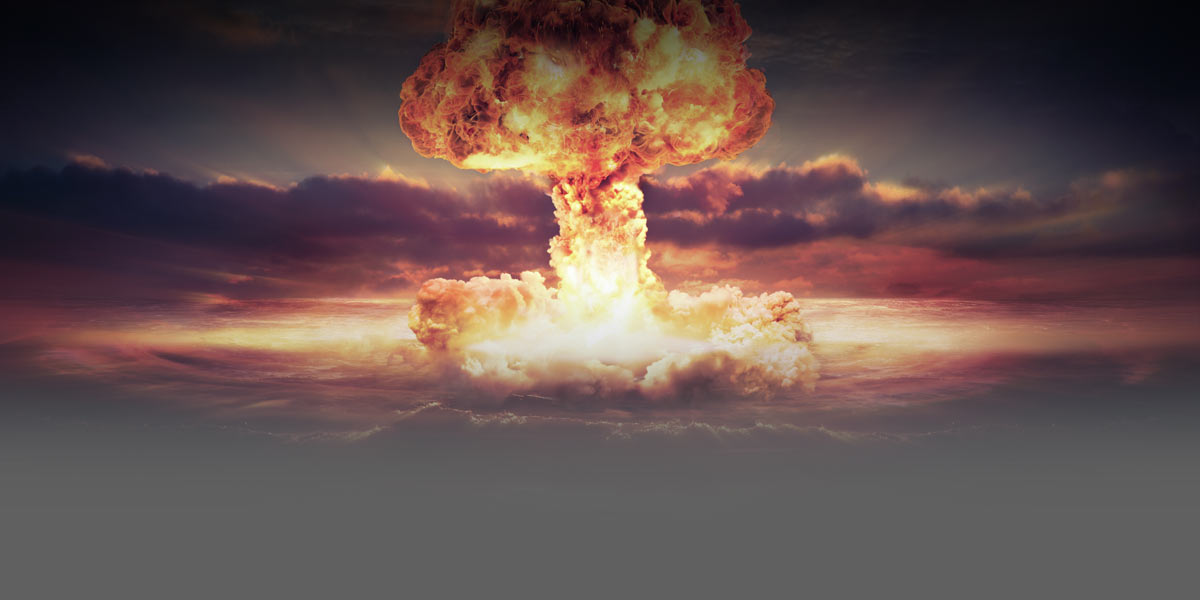"I would like to say 'This book is written to the glory of God', but nowadays this would be the trick of a cheat, i.e., it would not be correctly understood."--Ludwig Wittgenstein
"OH JESUS OH WHAT THE FUCK OH WHAT IS THIS H.P. LOVECRAFT SHIT OH THERE IS NO GOD I DID NOT SIGN UP FOR THIS—Popehat
Monday, September 09, 2019
The REALLY "Old Ways of Terrorizing Kids At School"
I went to elementary school in what was essentially a greenhouse. Walls on two sides of each classroom were floor to ceiling plate glass. It was sold as the "new thing" when the schools were built. My high school, built about the same time, had the same basic architecture. So in elementary school and high school, I sat in classes with at least one wall of solid glass. In "Tornado Alley." I knew kids who remembered seeing a tornado come up the street to their house about the time I was in elementary school. This kid lived near my elementary school. The tornado jumped over their house and proceeded in a straight line away from them. It went near the elementary school I attended, but did no real damage. In all the years I was in school there, we never had a tornado come through.
But we practiced "duck 'n' cover" for it. We learned to crouch under our desks and put our hands on the back of our necks, as protection from flying glass. Of course, in the case of a real tornado we'd likely have been squatting in a shrapnel zone, and our efforts at personal protection would have been futile. We also knew the other reason we practiced "duck 'n' cover": for nuclear blasts.
I was in a town about 100 miles east of Dallas, which was likelier to get hit with a nuclear missile than my town was, and even then only in the second or third wave. We thought about things like that as I grew up. A nuclear explosion close enough we'd have to cover our eyes to protect them from the bright flash of the initial explosion, would probably have been near enough to wipe our school off the map, and us with it. "Duck 'n' cover" was a joke, but the school had no basement, we had nowhere to go but beneath our desks, and they stood on four spindly legs with a wooden top and a metal box just under that to hold pencils and papers and books. We wouldn't have been protected if a good thunderstorm had blown a window out.
And yes, the windows were that fragile. A visiting band director from another school built on the "glass walls" principle (it was widespread in town) warned us one summer about running near the glass walls of our band room. He told of a student who went through the window of his school because the student was running, and how many buckets of sand it took to soak up the blood from the concrete. This was not the safety glass of later buildings that is all but bulletproof; this was the glass you could shatter with a well-thrown rock, a rock that would fit nicely in your hand.
I mention this because Josh Marshall writes of "clear and vivid memories of the last decade of the Cold War." He remembers "duck 'n' cover" as "a thing of the past and seen as a bit hokey and archaic." I'm older than Josh, because my memories date to the near-beginning of that era. The bomb-shelter episode of The Twilight Zone, all the episodes that imagined a post-nuclear war world, the movies on the theme (mostly about monsters and mutants caused by radiation; much more visually appealing than death by cancer), were what I grew up on. They were a mirror of the reality I expected (well, except for the monsters and mutants). I remember asking my mother why we didn't have a bomb shelter, and her reply: that she didn't want to live in a world that would exist after a nuclear holocaust. Those are sobering words for a 10 year old to hear from his mother. Josh writes about learning later how close the world came to a nuclear exchange in the early '80's. I grew up expecting it as sure the sunrise. I was only surprised it never happened.
I mention all this because, the older I get, the more I realize history is a matter of memory and memories, and memories are just the stories we collectively remember. Who will write the history of the '60's? People Josh's age, or mine? The age difference between us is slight, but I grew up in as different a world from him, as my father did from me. Which world is an accurate picture of American history? Which world will become a part of American history? Both? Neither? Does it matter?
As the President likes to say: "We'll see."
Subscribe to:
Post Comments (Atom)

No comments:
Post a Comment